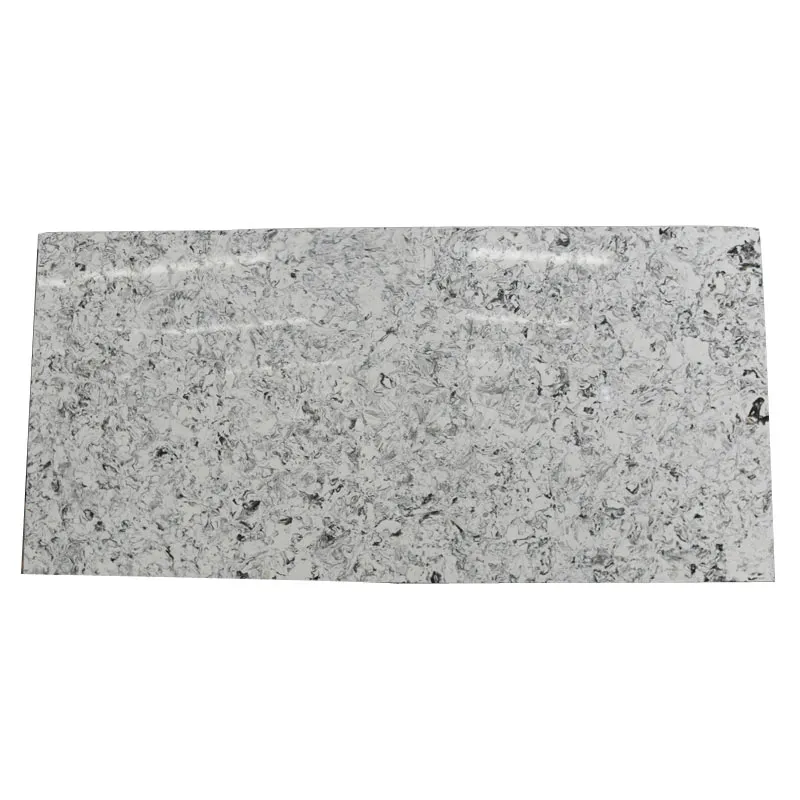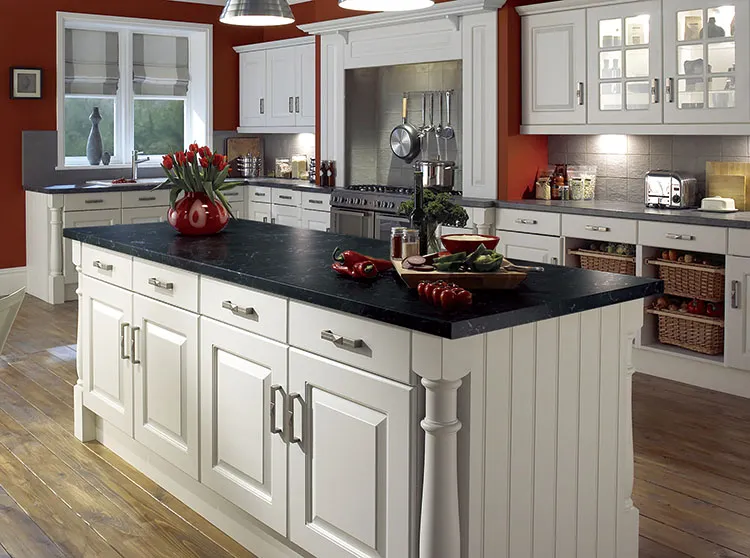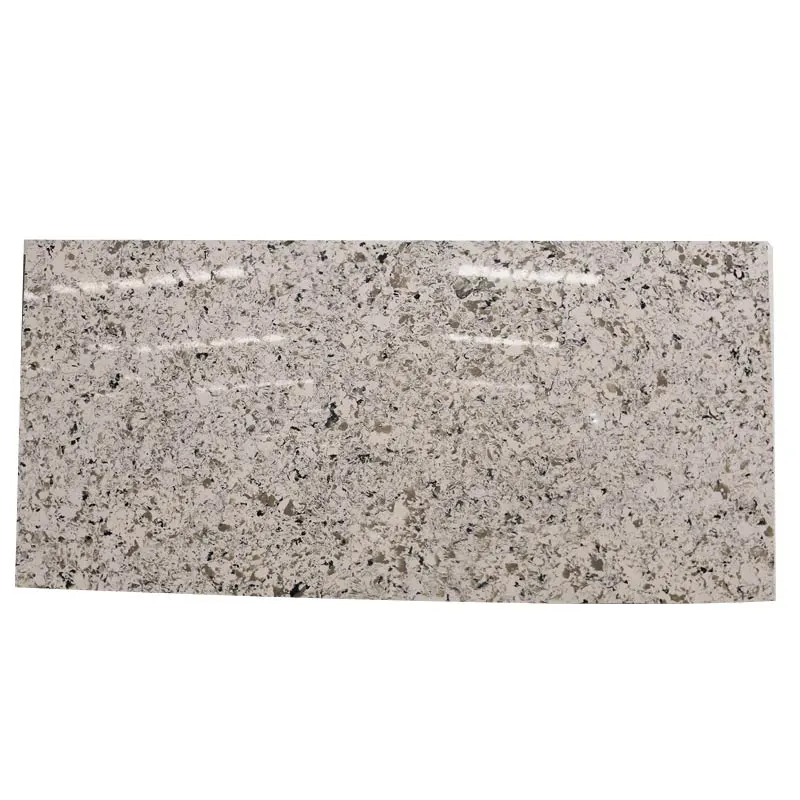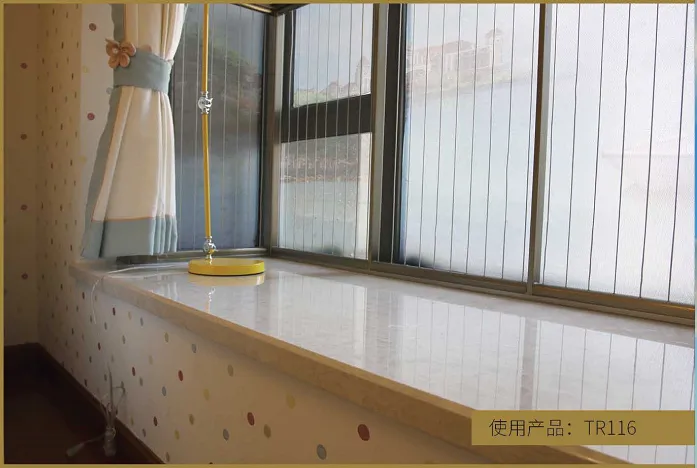
When people are renovating their kitchens and bathrooms, the choice of countertops is an important decision point. Countertops are not only functional components of indoor spaces, but also serve as beautiful decorations. In recent years, artificial marble and quartz countertops have become common choices for consumers.
So, how long can artificial marble countertops, one of them, be used? Can its durability be comparable to the quartz countertops that have been popular in recent years? This article will delve into the construction, characteristics, durability and other aspects of these two materials, and provide readers with detailed analysis and answers.
What is artificial marble?
Artificial marble is an artificial stone made by chemical and physical methods, usually made by mixing materials such as marble powder, resin, and pigment. Unlike natural marble, the manufacturing process of artificial marble is controllable, which means it can be designed into a variety of colors and textures to meet different decorative needs.
Specifically, the core components of artificial marble mainly include the following:
● Natural marble powder: As the main component, it provides texture and appearance for the countertop.
● Resin: Used to bond marble powder together while increasing the strength and stability of the material.
● Pigments and additives: used to improve the appearance and performance of the product, such as providing a variety of colors, textures, or enhancing its stain resistance, water resistance, etc.

What is a quartz countertop?
In contrast, quartz countertops are made of natural quartz minerals (about 90% to 95%) combined with resin. Quartz is an extremely hard natural mineral that gives quartz countertops excellent hardness and durability. The use of resin makes quartz countertops have a certain degree of flexibility, thereby reducing the possibility of cracking.
Quartz countertops are more solid than artificial marble, and their high content of quartz makes them excellent in compression resistance, scratch resistance, and stain resistance.
How long does an artificial marble countertop last?
The expected life of artificial marble
Under normal household use conditions, the expected life of an artificial marble countertop is generally between 10 and 20 years. Its lifespan is affected by several factors, including:
● Installation quality: If the artificial marble countertop is properly supported during installation and the joints are properly handled, its lifespan will be longer.
● Usage environment: Artificial marble countertops exposed to high humidity, extreme temperatures or chemicals may deform, fade or crack in a short period of time.
● Daily maintenance: Good maintenance can extend the service life of the countertop. Regular cleaning, avoiding the use of corrosive cleaners and preventing heavy objects from hitting can effectively protect artificial marble countertops.
Wear and aging performance
Over time, artificial marble countertops may show some typical signs of aging, such as surface scratches, fading of color or reduced gloss. This is caused by the wear and tear of its surface resin layer. Compared with quartz countertops, the surface of artificial marble is more susceptible to physical damage or chemical erosion. Even so, with proper repair and polishing, the appearance of artificial marble countertops can be restored to a certain extent.
How durable are quartz countertops?
Expected service life of quartz countertops
Quartz countertops usually have a service life of 20 to 30 years, or even longer. In some commercial environments or high-demand home kitchens, quartz countertops can still perform well. The long life of quartz countertops is attributed to the high hardness and low water absorption of the materials that make up them.
Quartz has a Mohs hardness of 7, second only to diamond, which makes quartz countertops difficult to scratch or wear in daily use. In addition, the low porosity of quartz countertops makes it very stain-resistant, making it difficult for liquids and stains to penetrate into the interior of the countertop, thereby reducing the risk of damage.
Performance of quartz countertops in extreme conditions
Whether in a kitchen environment with high temperature, humidity or frequent contact with food and beverages, quartz countertops are able to maintain their appearance and performance well. It is heat-resistant, chemical-resistant, and can resist the erosion of acid and alkaline substances. For example, common kitchen acidic liquids such as lemon juice or vinegar will not easily corrode the surface of quartz countertops. Although quartz countertops have good resistance to most everyday substances, it is still recommended to avoid directly placing overheated objects such as hot pots or kettles to prevent thermal shock caused by temperature changes.

Artificial marble vs. quartz countertops: Which is more durable?
Hardness and impact resistance
Quartz countertops are known for their high hardness, which makes it difficult to be scratched or damaged in daily use. In contrast, artificial marble has a lower hardness and is more susceptible to scratches from sharp objects. Especially in the case of frequent use of knives in the kitchen, quartz countertops are better at maintaining their smooth surface, while artificial marble countertops may require more protection and maintenance.
Although artificial marble is reinforced with resin, it is still not as impact-resistant as quartz countertops. For example, when a heavy object is dropped, quartz countertops are better able to withstand the impact, while artificial marble may crack or even break.
Heat and chemical resistance
Quartz countertops are better than artificial marble in terms of heat and chemical resistance. Although both can withstand high temperatures to a certain extent, artificial marble may deform or damage after prolonged contact with hot objects. Quartz countertops are better able to withstand temperature fluctuations common in the kitchen due to their more stable structure.
Quartz countertops also have obvious advantages in terms of chemical resistance. Artificial marble is more susceptible to acidic or alkaline substances due to its resin content, while quartz countertops are resistant to most common chemicals.
Water absorption and stain resistance
Quartz countertops have excellent water and stain resistance due to their low porosity. It is difficult for liquids and stains to penetrate its surface, which makes quartz countertops very easy to clean and maintain. Whether it is water, oil stains or food residues, a simple wipe can restore the quartz countertop to clean.
Although artificial marble has relatively low water absorption, due to its more porous surface, it may show stain penetration or discoloration when exposed to liquids for a long time. This is especially obvious on bathroom countertops or in humid environments. Therefore, artificial marble requires more protective measures during use, such as regular sealing of its surface.

Artificial marble vs. quartz countertops: How to maintain?
Maintenance requirements for artificial marble
Artificial marble countertops are relatively frequently maintained. In order to extend its service life, users need to polish and seal it regularly. Because its surface is more susceptible to scratches, it is recommended to avoid cutting food directly on it or placing sharp objects. When cleaning, avoid using strong acid or strong alkaline cleaners, and it is recommended to use neutral cleaners for daily cleaning.
If scratches or damage occur on artificial marble countertops, they can be repaired through professional repair and polishing techniques, but this requires a certain cost and time.
Quartz countertop maintenance requirements
Daily maintenance of quartz countertops is relatively simple. Due to its excellent stain and scratch resistance, users only need to wipe it with a damp cloth and neutral detergent to keep it shiny and clean. Quartz countertops do not require regular sealing, which greatly reduces the cost and complexity of their long-term maintenance.
A significant advantage of quartz countertops is that it has a high tolerance to most common chemicals, so special care does not need to be taken to avoid chemical contact.

